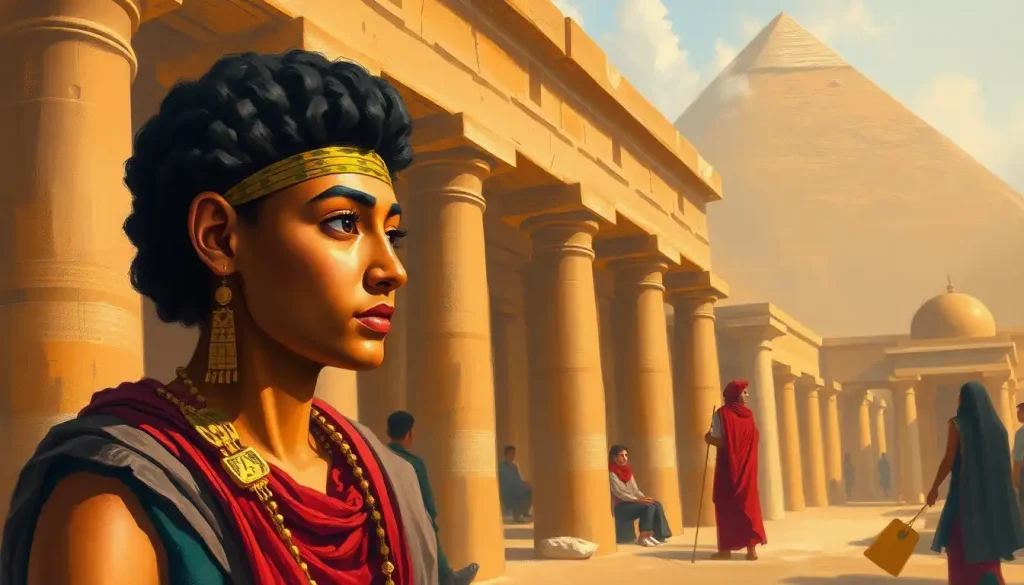Seeking abundance through divine connection has been a cornerstone of human civilization, weaving together the spiritual and material aspects of a prosperous life. This intertwining of faith and fortune is particularly evident in Islam, where the practice of dua, or supplication, serves as a powerful bridge between the earthly and the divine. In the Islamic tradition, dua is not merely a wish list presented to Allah, but a profound act of worship that reflects one’s trust, humility, and devotion.
The concept of dua extends far beyond simple requests for material gain. It encompasses a holistic approach to well-being, recognizing that true prosperity encompasses both spiritual and material dimensions. As we embark on this exploration of dua for wealth, we’ll delve into the intricate relationship between faith, effort, and abundance in the Islamic worldview.
The Islamic Perspective on Wealth: A Balanced Approach
Islam offers a nuanced and balanced perspective on wealth that might surprise those unfamiliar with its teachings. Far from denouncing material prosperity, Islam recognizes wealth as a potential blessing and a means to do good in the world. However, this view comes with important caveats and responsibilities.
In the Islamic framework, wealth is seen as a trust from Allah. The Quran repeatedly emphasizes that all possessions ultimately belong to Allah, and humans are merely custodians of these resources. This perspective fosters a sense of responsibility and gratitude, rather than entitlement or greed.
The concept of halal wealth is central to the Islamic understanding of prosperity. Halal, meaning permissible or lawful, extends beyond just food and drink to encompass all aspects of life, including how one earns and spends money. Wealth in Islam is not just about accumulation, but about the ethical and moral dimensions of financial dealings.
Islam encourages its followers to seek wealth through legitimate means and to use it for noble purposes. The Prophet Muhammad (peace be upon him) is reported to have said, “The best wealth is the wealth of a righteous person.” This hadith underscores the importance of character and intention in the pursuit of prosperity.
Balancing material pursuits with spiritual growth is a key aspect of the Islamic approach to wealth. While Muslims are encouraged to work hard and seek provision, they are also reminded not to let the pursuit of wealth distract them from their religious obligations and spiritual development. The Quran warns against becoming overly attached to worldly possessions, stating, “Wealth and children are [but] adornment of the worldly life. But the enduring good deeds are better to your Lord for reward and better for [one’s] hope.” (18:46)
This balanced approach to wealth sets the stage for understanding the role of dua in seeking prosperity. It’s not about asking for riches for their own sake, but about seeking the means to fulfill one’s responsibilities, help others, and contribute positively to society.
Dua for Increase in Wealth: Seeking Divine Favor
In the Islamic tradition, there are numerous duas from the Quran and Hadith that believers can recite to seek an increase in wealth. These supplications are not magical formulas, but rather heartfelt conversations with Allah, expressing one’s needs and aspirations while acknowledging His ultimate power and wisdom.
One of the most well-known duas for increasing wealth comes from the Quran itself. In Surah Ta-Ha, Prophet Musa (Moses) supplicates:
“My Lord, expand for me my breast [with assurance], and ease for me my task, and untie the knot from my tongue that they may understand my speech. And appoint for me a minister from my family – Aaron, my brother. Increase through him my strength and let him share my task.” (Quran 20:25-32)
While this dua was specific to Prophet Musa’s situation, many Muslims recite it as a general supplication for ease in their affairs, including financial matters.
Another powerful dua for wealth comes from the teachings of Prophet Muhammad (peace be upon him). He advised his followers to recite:
“Allahumma inni as’aluka ‘ilman nafi’an, wa rizqan tayyiban, wa ‘amalan mutaqabbalan”
Meaning: “O Allah, I ask You for beneficial knowledge, goodly provision, and acceptable deeds.”
This comprehensive dua encapsulates the Islamic approach to seeking prosperity, linking it with knowledge and good deeds.
However, it’s crucial to understand that the effectiveness of dua is not just in the words spoken, but in the sincerity and consistency with which they are uttered. The Quran emphasizes this point: “And your Lord says, ‘Call upon Me; I will respond to you.'” (40:60) This verse underscores the importance of persistence and faith in making dua.
Moreover, Islam teaches that dua should be combined with practical efforts. The concept of “tying your camel” comes from a hadith where Prophet Muhammad (peace be upon him) advised a man to tie his camel and then trust in Allah, rather than leaving the camel untied and merely praying for its safety. This principle applies equally to financial matters – one should make dua for wealth while also working diligently and making wise financial decisions.
Dua for Rizq and Wealth: Understanding Divine Provision
The concept of rizq in Islam is broader and more profound than the English word “sustenance” might suggest. Rizq encompasses all forms of provision from Allah, including but not limited to material wealth. It can include knowledge, health, relationships, and spiritual blessings.
One of the most powerful duas for expanding one’s rizq comes from the Quran. In Surah Al-Mu’minun, believers are taught to say:
“Rabbi anzilni munzalan mubarakan wa anta khayrul munzilin”
Meaning: “My Lord, let me land at a blessed landing place, and You are the best to accommodate [us].” (23:29)
While this dua was originally made by Prophet Nuh (Noah) when disembarking from the ark, many Muslims recite it as a general supplication for blessings in their dwellings and affairs.
Another beautiful dua for rizq is:
“Allahumma rzuqni rizqan halalan tayyiban min ghairi ta’bin wala mashaqqah”
Meaning: “O Allah, grant me halal and pure sustenance without hardship or difficulty.”
This dua reflects the Islamic principle of seeking ease and blessings in one’s provision, while emphasizing the importance of halal earnings.
Interestingly, the Islamic concept of rizq is closely tied to gratitude. The Quran states, “And [remember] when your Lord proclaimed, ‘If you are grateful, I will surely increase you [in favor]'” (14:7). This verse suggests a direct correlation between expressing thankfulness for what one has and receiving more blessings.
Dua to increase wealth in Islam is thus not just about asking for more, but about recognizing and appreciating what one already has. This attitude of gratitude can lead to a sense of contentment and abundance, regardless of one’s material circumstances.
Dua for Wealth and Barakah: Inviting Divine Blessings
The concept of barakah, often translated as “blessings,” is central to the Islamic understanding of wealth and prosperity. Barakah goes beyond mere quantity; it represents a divine quality that brings about increase, prosperity, and satisfaction. In essence, barakah is what transforms wealth from a mere number into a source of true contentment and benefit.
One of the most beautiful duas for seeking barakah in one’s wealth comes from the Prophet Muhammad (peace be upon him):
“Allahumma barik lana fima razaqtana waqina adhaban-nar”
Meaning: “O Allah, bless us in what You have provided for us and protect us from the punishment of the Fire.”
This dua beautifully combines the request for blessings in provision with a reminder of the ultimate purpose of life – to seek Allah’s pleasure and avoid His displeasure.
Another powerful dua for barakah in wealth is:
“Allahumma inni as’aluka min fadlika wa rahmatika, fa innahu la yamlikuhuma illa anta”
Meaning: “O Allah, I ask You from Your favor and Your mercy, for none can possess them but You.”
This supplication acknowledges that all blessings come from Allah alone, fostering a sense of humility and dependence on the Divine.
To invite barakah into one’s financial affairs, Islamic teachings emphasize several practices beyond making dua. These include:
1. Giving charity: The Prophet Muhammad (peace be upon him) said, “Charity does not decrease wealth.” This paradoxical statement reflects the belief that giving to others invites divine blessings into one’s own life.
2. Avoiding interest (riba): Islam strictly prohibits dealing with interest, considering it a major sin that destroys barakah in wealth.
3. Being honest in business dealings: Truthfulness and transparency in financial transactions are seen as key to inviting barakah.
4. Expressing gratitude: Regularly thanking Allah for His provisions, no matter how small, is believed to increase barakah.
Dua for wealth, money, and a good house should thus be understood not just as requests for material possessions, but as invitations for divine blessings that make these possessions truly beneficial and satisfying.
Dua for Wealth and Success: A Holistic Approach
In Islam, true success encompasses both worldly achievements and spiritual growth. The Quran often pairs the concepts of falah (success) and fawz (triumph) with righteousness and God-consciousness. Therefore, duas for wealth and success in the Islamic tradition tend to be comprehensive, addressing both material and spiritual aspects of life.
One of the most comprehensive duas for success comes from the Quran itself:
“Rabbana atina fid-dunya hasanatan wa fil-akhirati hasanatan waqina adhaban-nar”
Meaning: “Our Lord, give us in this world [that which is] good and in the Hereafter [that which is] good and protect us from the punishment of the Fire.” (2:201)
This dua encapsulates the Islamic ideal of balance between worldly success and spiritual wellbeing.
Another powerful dua for comprehensive success is:
“Allahumma aslih li diniy alladhi huwa ‘ismatu amri, wa aslih li dunyaya allati fiha ma’ashi, wa aslih li akhirati allati fiha ma’adi, waj’al al-hayata ziyadatan li fi kulli khair, waj’al al-mawta rahatan li min kulli sharr”
Meaning: “O Allah, set right for me my religion which is the safeguard of my affairs. And set right for me the affairs of my world wherein is my living. And set right for me my Hereafter on which depends my afterlife. And make the life for me (a source) of abundance for every good and make my death a source of comfort for me protecting me against every evil.”
This comprehensive dua reflects the holistic Islamic approach to success, encompassing all aspects of life and beyond.
In seeking Allah’s guidance in financial decisions, Muslims are encouraged to perform Istikhara prayer. This special prayer is a way of seeking Allah’s guidance when faced with important decisions, including major financial choices.
How to pray for wealth in Islam thus involves not just asking for material increase, but seeking guidance, protection, and holistic success. It’s about aligning one’s desires with divine wisdom and seeking prosperity that leads to both worldly comfort and spiritual elevation.
Conclusion: The Power of Dua in the Pursuit of Prosperity
As we conclude our exploration of dua for wealth in Islam, it’s clear that this practice is far more than a simple plea for material gain. It represents a profound spiritual exercise that aligns the believer’s desires with divine wisdom, fostering a balanced approach to prosperity that encompasses both worldly success and spiritual growth.
The power of dua in seeking wealth lies not in its ability to magically produce riches, but in its capacity to transform the supplicant’s perspective and approach to wealth. Through sincere and consistent dua, believers are reminded of the true source of all provisions, fostering gratitude, humility, and trust in Allah’s plan.
However, it’s crucial to remember that dua is not a substitute for effort and ethical conduct. Islam encourages a proactive approach where supplication is combined with diligent work, wise financial management, and adherence to ethical principles. Praying for wealth should go hand in hand with educating oneself about financial matters, making prudent investments, and avoiding prohibited practices like dealing with interest or engaging in fraudulent activities.
Moreover, the Islamic approach to wealth, as reflected in these duas, emphasizes the importance of using one’s resources for the greater good. Wealth is seen not as an end in itself, but as a means to fulfill one’s responsibilities, help those in need, and contribute positively to society.
In essence, the practice of making dua for wealth in Islam offers a holistic framework for prosperity. It encourages believers to dream big while remaining grounded in spiritual values. It promotes ambition while fostering contentment. It seeks abundance while emphasizing the importance of gratitude for what one already has.
As we navigate the complexities of modern financial landscapes, the wisdom embedded in these Islamic teachings and supplications offers valuable guidance. It reminds us that true wealth is not just about the numbers in our bank accounts, but about the richness of our character, the strength of our faith, and the positive impact we make in the world.
Whether you’re seeking to expand your business, improve your financial situation, or simply invite more blessings into your life, remember that in the Islamic tradition, the key to true prosperity lies in maintaining a balance between spiritual devotion and worldly pursuits. By combining sincere dua with ethical conduct and diligent effort, you open yourself to a form of success that is truly comprehensive – one that enriches not just your pocket, but your heart and soul as well.
References:
1. Ali, A. Y. (2001). The Meaning of the Holy Qur’an. Amana Publications.
2. Al-Bukhari, M. (1997). Sahih al-Bukhari. Dar-us-Salam Publications.
3. Muslim, I. (2007). Sahih Muslim. Dar-us-Salam Publications.
4. Ibn Kathir, I. (2000). Tafsir Ibn Kathir. Darussalam.
5. Al-Ghazali, A. H. (2011). The Revival of the Religious Sciences. Islamic Texts Society.
6. Qaradawi, Y. (1999). The Lawful and the Prohibited in Islam. American Trust Publications.
7. Nomani, M. M. (1995). The Quran and You. Islamic Book Service.
8. Ramadan, T. (2009). Radical Reform: Islamic Ethics and Liberation. Oxford University Press.
9. Beekun, R. I., & Badawi, J. A. (2005). Balancing Ethical Responsibility among Multiple Organizational Stakeholders: The Islamic Perspective. Journal of Business Ethics, 60(2), 131-145.
10. Chapra, M. U. (2000). The Future of Economics: An Islamic Perspective. Islamic Foundation.












Would you like to add any comments? (optional)